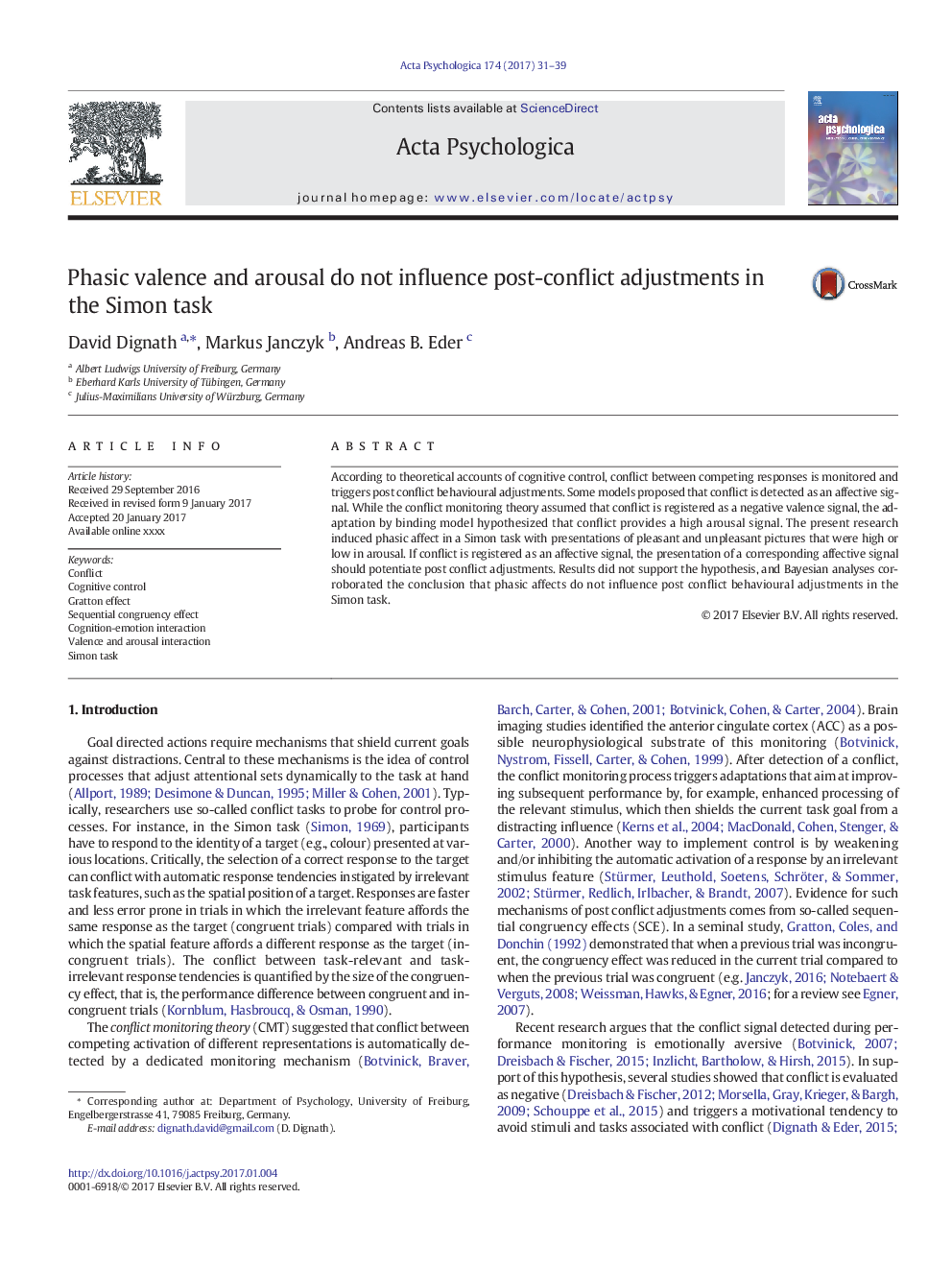ترجمه فارسی عنوان مقاله
غلظت فیزیکی و تحریک در تنظیمات پس از جنگ در کار سیمون تاثیر نمی گذارد
عنوان انگلیسی
Phasic valence and arousal do not influence post-conflict adjustments in the Simon task
| کد مقاله | سال انتشار | تعداد صفحات مقاله انگلیسی |
|---|---|---|
| 160957 | 2017 | 9 صفحه PDF |
منبع

Publisher : Elsevier - Science Direct (الزویر - ساینس دایرکت)
Journal : Acta Psychologica, Volume 174, March 2017, Pages 31-39
ترجمه کلمات کلیدی
تعارض، کنترل شناختی، اثر گراتون، اثر کنترلی متوالی، تعامل شناختی-عاطفی، تعامل والنتاین و تحریک کننده، وظیفه سیمون،
کلمات کلیدی انگلیسی
Conflict; Cognitive control; Gratton effect; Sequential congruency effect; Cognition-emotion interaction; Valence and arousal interaction; Simon task;
ترجمه چکیده
با توجه به نظریات نظری در مورد کنترل شناختی، درگیری بین پاسخ های رقابتی تحت نظارت قرار می گیرد و باعث تنظیمات رفتاری پس از جنگ می شود. برخی از مدل ها پیشنهاد می کنند که درگیری به عنوان یک سیگنال عاطفی تشخیص داده می شود. در حالی که نظریه نظارت بر مانع فرض بر این بود که درگیری به عنوان یک سیگنال ولنتاین ثبت شده ثبت می شود، سازگاری با مدل الحاقی فرض شده است که درگیری یک سیگنال تحریک وارده را ایجاد می کند. تحقیق حاضر موجب تأثیر فازی در یک وظیفه سایمون با ارائه تصاویر دلخواه و ناخوشایند شده بود که در انفجار بالا یا پایین بودند. اگر مناقشات به عنوان یک سیگنال عاطفی ثبت شده باشد، ارائه یک سیگنال عاطفی مربوطه، باعث تقویت تنظیمات پس از زلزله می شود. نتایج از این فرضیه پشتیبانی نمی کند و تجزیه و تحلیل بیزی نیز نتیجه گیری می کند که تأثیر فاز بر تغییرات رفتاری پس از جنگ در کار سایمون تاثیر نمی گذارد.

